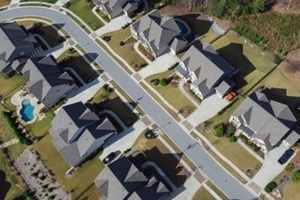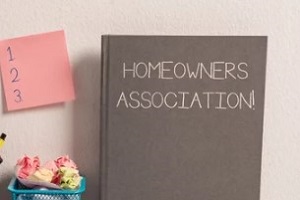 HOAs offer a community-managed alternative to residential living. These areas tend to offer more amenities, such as club houses, pools, and maintained public roads and sidewalks. However, in exchange, residents are committed to paying regular dues to the managing body.
HOAs offer a community-managed alternative to residential living. These areas tend to offer more amenities, such as club houses, pools, and maintained public roads and sidewalks. However, in exchange, residents are committed to paying regular dues to the managing body.
These may be collected monthly, annually, or on another schedule specified in the residency contract. Many homeowners are therefore surprised to find that they have received a bill for an HOA special assessment in addition to their normal dues.
A special assessment is one of the rights held by the governing body, and the laws for enforcing a special assessment are encoded within California law. If you believe that your HOA is not properly utilizing special assessments and their constraints, be sure to speak with a legal team to defend your rights as a homeowner.
Here is an overview of how California HOAs enforce special assessments and the rules governing their use.
What Is a HOA Special Assessment?
Special assessments differ from standard dues in that they are levied only to pay for unexpected expenses for which the governing body’s budget is insufficient. By their nature, special assessments are often unpredictable and are used most commonly to address severe damage to the neighborhood as a result of a natural disaster or other unprecedented event.
However, the types of projects to which special assessment money may be dedicated, as well as how much can be collected from each resident, are strictly codified in California law.
When an HOA fails to properly implement a special assessment, homeowners may be left paying bills higher than what is permitted or for projects that do not qualify for these one-time assessments.
In order to understand whether your HOA is properly levying an assessment, you will need to understand the rules that govern them.
Rules Governing How HOAs Enforce Special Assessments
Special assessments are bound by the Davis-Stirling Act, delineating the rights of HOA residents in civil code (e.g., Civil Code § 5605, 4070). The rules that must apply to all special assessments include:
1. Unexpected Budget Shortfalls
 All special assessments must be used to pay for projects that arise due to an unexpected shortfall in the HOA’s budget. Most commonly, this arises when a natural disaster causes harm to community property or some broad-scope malfunction, such as sewer degradation, damages substantial areas of land within the HOA.
All special assessments must be used to pay for projects that arise due to an unexpected shortfall in the HOA’s budget. Most commonly, this arises when a natural disaster causes harm to community property or some broad-scope malfunction, such as sewer degradation, damages substantial areas of land within the HOA.
Alternatively, some special assessments are used to pay for new or improved community facilities for which the HOA would not otherwise have the funds.
Special assessments may not be used in lieu of proper budgeting. The governing body should maintain adequate finances for regular repairs and maintenance of the community as part of the residents’ regular dues.
2. Community-Wide Impact
Special assessments must be used to fund improvements or repairs that impact the entire community. This may include refurbishing, upgrading, or adding amenities such as pools and communal areas, or it may include urgent repairs to a roadway or sidewalk. Special assessments may not be used to repair individual homes.
3. Capped Percentage
The HOA governing body may not levy a special assessment whose value exceeds 5% of the annual budget. This 5% is split evenly among all households; that is, each household is not required to pay 5%. In a community of 20 households for which a 5% special assessment is valued at $20,000, each household would pay $1,000.
4. Majority of Quorum Voting
In certain circumstances, the community may agree to pay more than the 5% limit in order to fund improvements or repairs. However, the HOA must pass this action through a quorum of all residents, of whom the majority must vote in agreement. The Davis-Stirling Act prevents governing documents from requiring a supermajority for assessment approval.
5. Notice Requirements
 When a special assessment is being levied, the HOA governing body must post a notice to all residents more than 30 days in advance, but no more than 60 days before the due date for the payment.
When a special assessment is being levied, the HOA governing body must post a notice to all residents more than 30 days in advance, but no more than 60 days before the due date for the payment.
Multiple methods of delivery are permitted, including first-class mail, registered or certified mail, express mail, or overnight delivery. However, individual notice is also permitted and should be provided to the resident’s address on file.
Defend Your California HOA Rights with a Legal Team
HOAs can leverage special assessments to significantly improve the quality of life within a community and ensure it remains in good repair. However, HOAs must utilize this power responsibly and within the confines of the law.
The attorneys at Lehr Law work with residents to uphold their rights when HOAs are overstepping their legal permissions. Contact Lehr Law to schedule a consultation if you believe that your rights as an HOA resident are being violated with regards to special assessments.
